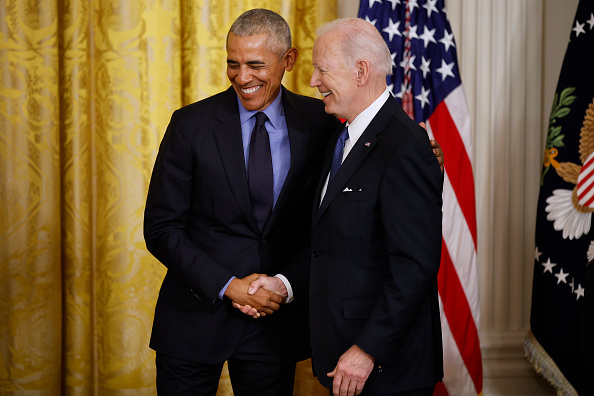The Internal Revenue Service (IRS) has proposed a rule that could extend Obamacare health insurance subsidies to millions of additional people.
The IRS regulation would “fix” the so-called “family glitch” in the Affordable Care Act (ACA), according to the Biden administration. The glitch refers to an ACA provision that determines who qualifies for subsidized coverage on the Obamacare exchanges.
Obamacare defines “affordable” as individual coverage that costs no more than 9.83 percent of a person’s annual income. An employee could have affordable employer-based health insurance as an individual, but not affordable family coverage. Under the ACA, the employee’s family does not qualify for subsidies. The rule change would allow such employees and their families to receive subsidized Obamacare coverage.
Obamacare Expansion
An estimated 200,000 people without health insurance would gain coverage and nearly one million Americans would “see their coverage become more affordable, ” according to a White House Fact Sheet.
However, the rule change could extend exchange subsidies to more than 5 million additional Americans, according to Kaiser Family Foundation (KKF) figures, wrote Sally Pipes, president, and CEO of the Pacific Research Institute, in RealClearPolicy on May 11.
Just over 9.7 million Americans received exchange subsidies in 2021, states the KKF.
Lawmakers Cry Foul
The ACA does not allow eligibility expansion by rulemaking, say U.S. Rep. Kevin Brady (R-Tex.), ranking member of the House Committee on Ways & Means, and U.S. Sen. Mike Crapo (R-Idaho), ranking member of the Senate Finance Committee, in a letter to Treasury Secretary Janet Yellen.
“As the Obama administration ultimately acknowledged, the applicable statutory language does not allow for the revisionist reinterpretation advanced by the Treasury and the Internal Revenue Service through this new regulation,” wrote the Congressmen.
“Moreover, unilaterally redefining the ACA’s insurance affordability standard could result in substantial disruptions of workers and job creators alike, in addition to exacerbating 40-year-high inflation through tens of billions of new taxpayer spending,” Brady and Crapo wrote. “Unfortunately, the proposed rule contains little discussion or analysis of either the coverage or the economic effects, including the estimated cost of the regulations.”
Employers Could Spend Less
The Biden administration is overstepping its authority, says Brian Blase, Ph.D., CEO of Blase Policy Strategies LLC and a senior research fellow at the Galen Institute, told Health Care News.
“[D]uring the Obama administration and after an exhaustive review, the IRS and Treasury correctly determined that Obamacare defines affordability of employer coverage with respect to the price of the plan offered the worker for self-only coverage,” said Blase. “The White House has a political desire to expand Obamacare, but the IRS must not allow itself to become a tool of the White House, changing its enforcement of the tax code based on the party in power.”
One consequence of what the administration is proposing is that employers will drop their health plans or increase employee premium costs, Doug Badger, senior research fellow at the Heritage Foundation’s Center for Health and Welfare Policy, told Health Care News.
“This stealth Obamacare expansion will incentivize employers to spend less on health insurance for workers’ families, leaving many Americans worse off,” said Badger.
Potential Court Challenge
If the administration finalizes the rule, it faces an almost certain court challenge, say observers.
The U.S. Supreme Court’s June 30 ruling in West Virginia v. EPA reined in federal agencies’ power to act beyond what Congress specifically authorizes them to do, especially in matters involving major questions.
“A decision of such magnitude and consequence rests with Congress itself, or an agency acting with clear delegation from that representative body,” Chief Justice John Roberts wrote. That Supreme Court precedent could also be applied to the Biden administration’s efforts to expand subsidized ACA coverage without congressional authority.
The proposed rule, titled “Affordability of Employer Coverage for Family Members of Employees,” is expected to be finalized before the end of 2022 and would go into effect on January 1, 2023.
Bonner Russell Cohen, Ph.D. (bcohen@nationalcenter.org) is a senior fellow at the National Center for Public Policy Research.
For more great content from Health Care News.





















